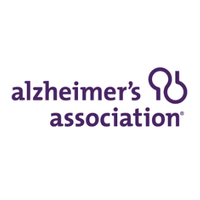
(UNDATED) – The holiday season can be a joyous time for many families, but they can be challenging for families affected by Alzheimer’s and other dementias. The current COVID-19 crisis is adding even more complexities that can feel overwhelming for many of these families.
While Alzheimer’s and dementia do not increase the risk of COVID-19, dementia-related behaviors, increased age and common health conditions that often accompany dementia may increase risk.
Social distancing protocols, travel restrictions and restrictions preventing families from visiting loved ones in nursing homes or other long-term care facilities are making in-person holiday celebrations challenging, if even possible, this year.
To help families navigate these challenges and provide a meaningful and enjoyable occasion for families, the Alzheimer’s Association Greater Indiana Chapter is offering tips to help families plan appropriately.
Adapt traditions. Keeping up with holiday traditions while caring for someone with dementia, especially during the COVID-19 crisis, may be overwhelming. And for the person living with dementia, maintaining a normal routine as much as possible can help reduce the chances of confusion and agitation. Arrange a group call, video chat or email to ensure everyone understands the caregiving situation and discuss ways to scale back or alter traditions.
Set expectations. Having a conversation in advance also provides a good opportunity to let friends and family members know what to expect. If the person is in the early stages of Alzheimer’s, relatives and friends might not notice any changes. But the person living with dementia may repeat things or have trouble following conversation. Family can help by being patient and not interrupting or correcting. If the person is in the middle or late stages of Alzheimer’s, there may be significant changes in cognitive abilities since the last conversation. These changes can be hard to accept. Make sure friends and family understand that changes in behavior and memory are caused by the disease and not the person.
Take time to adjust to virtual meetings. FaceTime, Skype or Zoom calls are a safe way to connect, but may be confusing for those living with Alzheimer’s, even if someone else is facilitating the technology. Try doing some virtual meeting “practice runs” in the days and weeks leading up to the holiday.
Keep virtual gatherings small. Cross talk or simultaneous conversations can be challenging for people living with Alzheimer’s and may be even more difficult in a virtual setting. Try engaging them one-on-one or in smaller group settings. Consider conducting a holiday activity such as baking cookies, exchanging gifts or singing favorite holiday songs.
Adapt gift giving. Encourage safe and useful gifts for the person living with Alzheimer’s. If someone asks for gift ideas, suggest items the person needs or can easily enjoy, such as comfortable clothing, favorite foods, music, videos, and photo albums of family and friends.
Prepare a favorite holiday meal or dessert. The current COVID-19 crisis has offered many families more time to cook and prepare meals. Make plans to prepare your loved one’s favorite holiday meal or dessert. If you are unable to share the meal in-person, drop it off or have it delivered.
Go for a holiday stroll. Indoor gatherings generally pose more risk than outdoor gatherings. Instead of hosting an extended indoor holiday celebration, consider bundling up and gathering immediate family for a socially distanced neighborhood walk to soak in the season. Bring along some hot chocolate for a festive treat.
Celebrate smart. Celebrate safe. If you decide to gather in-person this year, consider keeping celebrations small. For a person living with Alzheimer’s, this has the added benefit of reducing confusion and agitation. If possible, opt for large, open settings that allow for social distancing. Encourage attendees to follow safety protocols during the celebration, including hand washing, the use of hand sanitizer and masks, as appropriate.
Take a person-centered approach. It is important to keep the needs of the person living with Alzheimer’s in mind when adapting holiday traditions. For example, if evening confusion and agitation are a problem, schedule your in-person or virtual gathering during the day.
On Friday, December 4 at 12 p.m., The Alzheimer’s Association Greater Indiana Chapter will host a Facebook Live event about caregiving during the holiday season at facebook.com/AlzIndiana.
The event will feature Dr. Sophia Wang of the Indiana Alzheimer’s Disease Research Center, Mandla Moyo of AARP, and Maria Holmes, a social worker at the Alzheimer’s Association Greater Indiana Chapter.
Visit alz.org/Indiana for more tips and information on virtual education programs and support groups. The Alzheimer’s Association toll-free 24/7 Helpline (1-800-272-3900) is available – even on holidays – to help families navigate disease-related challenges, including those resulting from the current pandemic.
About the Alzheimer’s Association: The Alzheimer’s Association is a worldwide voluntary health organization dedicated to Alzheimer’s care, support and research. Our mission is to lead the way to end Alzheimer’s and all other dementia — by accelerating global research, driving risk reduction and early detection, and maximizing quality care and support. Their vision is a world without Alzheimer’s and all other dementia™. Visit
alz.org or call 1-800-272-3900.



